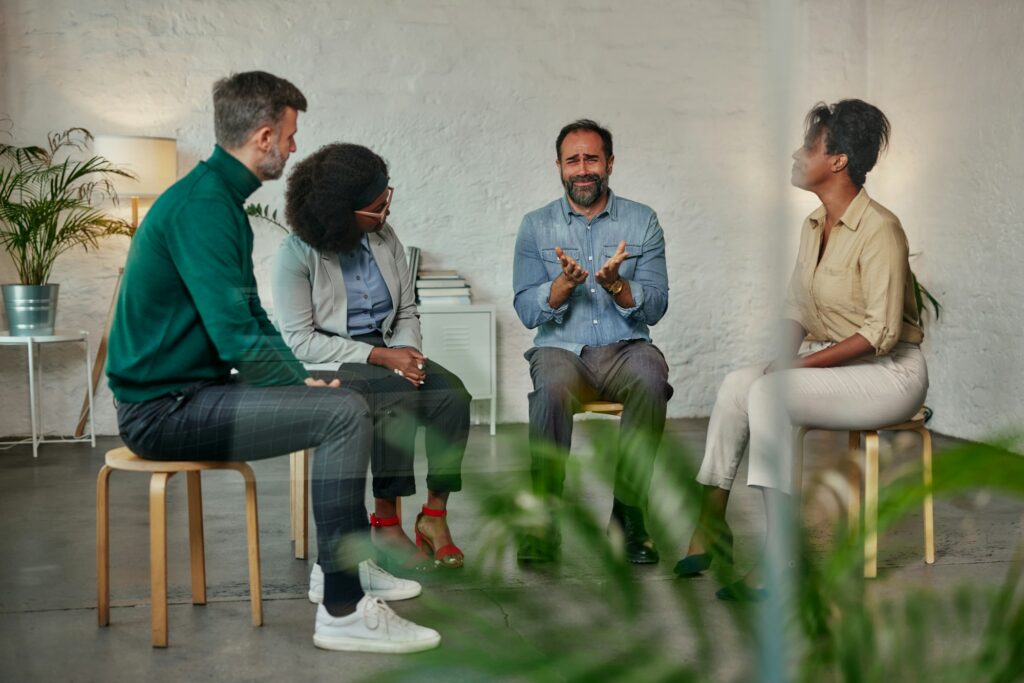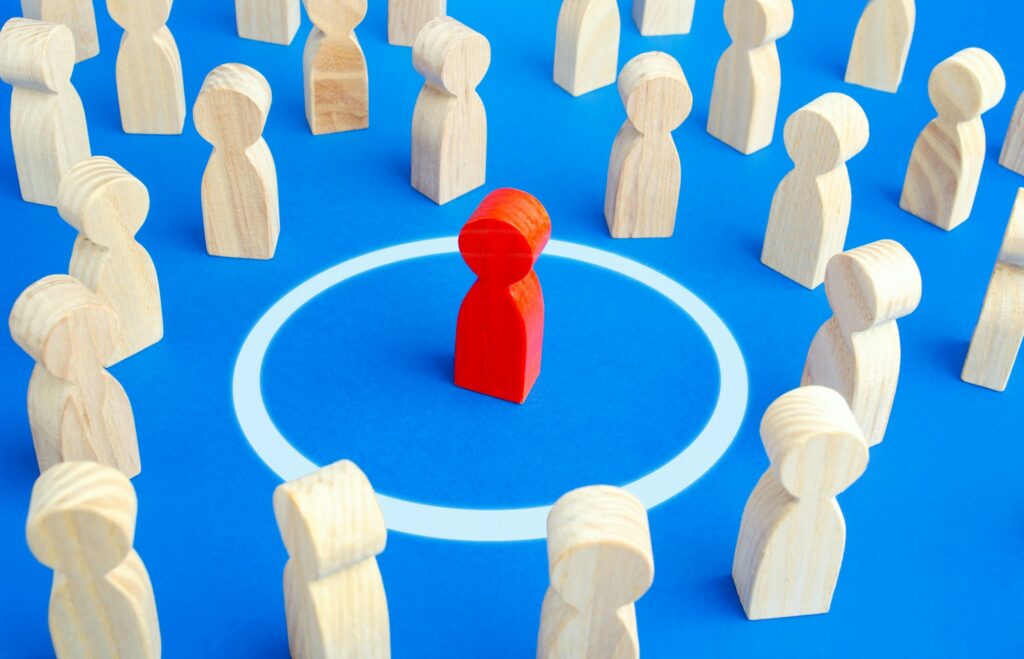Hey there! If you’re reading this, chances are you’re looking to make a change in how you interact with the world around you. Maybe you’ve felt a bit on the outskirts of social gatherings or perhaps the idea of making small talk fills you with dread. Whatever your reasons, I’m here to assist you on this journey on how to be less antisocial. It’s not about changing who you are but enhancing your life by embracing the beauty of social interactions. So, let’s dive in together, shall we?

Understanding Antisocial Tendencies
First off, it’s crucial to differentiate between being antisocial and asocial. Antisocial individuals often exhibit behaviors that can be harmful to themselves or others, sometimes linked to antisocial personality disorder, which involves a lack of empathy, disregard for the rights of others, and often, aggressive behavior. On the other hand, being asocial means you simply prefer to be alone and find social situations draining. Both can be influenced by a myriad of factors, including environmental factors, mental health conditions, and even early childhood experiences.
Personality disorders, such as borderline personality disorder, narcissistic personality disorder, and even conditions like social anxiety disorder and bipolar disorder, can significantly impact one’s social life. These conditions often come with their own set of challenges, including difficulty in maintaining close relationships, experiencing feelings of empathy, and navigating social norms.

The Role of Support Systems
One of the best ways to start addressing antisocial tendencies is by leaning on a support system. This could be a close friend, a family member, or even a mental health provider. Support groups and therapy, especially cognitive behavioral therapy, have shown great promise in helping individuals understand and improve their social skills.
These settings provide a safe space to explore the root causes of one’s antisocial behavior, including examining past negative experiences, substance use disorder, and even the impact of authoritarian parenting styles. With the help of these support systems, individuals can develop a better understanding of themselves and their relationships, leading to healthier social connections.

Embracing Social Skills and Healthy Relationships
Improving social skills is no easy task, but the payoff is well worth it! Check out these tips to get started:.
Understand the power of body language
Body language plays a crucial role in social interactions. The way we hold ourselves, make eye contact, and use gestures can convey a wealth of information without saying a word. By being mindful of these non-verbal cues, we can better understand others and express ourselves more effectively.
Cultivate empathy
Empathy is the ability to put ourselves in someone else’s shoes and understand their thoughts, feelings, and perspectives. It goes beyond sympathy and allows us to truly connect with others on a deeper level. Through empathy, we can build trust, strengthen relationships, and foster a sense of understanding and compassion.
Form healthy relationships
By mastering the art of body language and cultivating empathy, we can lay the foundation for strong and meaningful connections with others. When we are aware of our own non-verbal cues and can interpret those of others, we can navigate social interactions with more ease and authenticity. Empathy helps us to see beyond our own experiences and truly connect with others, building trust and rapport.
Practice makes perfect
Social interactions provide endless opportunities for growth and learning. Stepping out of our comfort zones, engaging in small talk at events, and finding common ground with new people allows us to expand our social skills and become more comfortable in various settings. With each interaction, we gain valuable experience and confidence, improving our ability to connect with others and build meaningful relationships.
Remember, progress comes with each step outside your comfort zone. So embrace the challenge and watch your social skills flourish! Additionally, don’t be afraid to ask for help if you need it. Whether it’s practicing active listening, working on conflict resolution, or addressing any underlying mental health conditions, seeking support can make a significant difference in your social development.

The Importance of Boundaries
While it’s essential to embrace social connections and improve our social skills, it’s equally crucial to set boundaries, even for antisocial people. Boundaries help us define our limits and protect our mental, emotional, and physical well-being. They also play a vital role in maintaining healthy relationships by ensuring that we are not taken advantage of or put in uncomfortable situations.
Setting boundaries can be challenging, especially for those with people-pleasing tendencies. But remember, saying “no” is not a negative thing; it’s an act of self-care. Start small by setting boundaries with friends and family, and gradually extend them to other areas of your life. Communicate clearly and confidently, and don’t be afraid to enforce consequences if necessary.
Lifestyle Changes and Professional Help
Making lifestyle changes can have a big impact on your social interactions. If you’re struggling with substance abuse, it’s important to address it because it can contribute to antisocial behavior. Seeking help from a healthcare provider or a clinical psychologist is a great step. They can diagnose the issue if needed and discuss different treatment options with you. Here are some examples of what treatment might involve:
- Family therapy: Working together with your loved ones to improve communication and build healthier relationships.
- Group therapy: Joining a supportive group of people who are going through similar challenges can provide a sense of belonging and understanding.
- Medication: In more severe cases, medication may be prescribed to help manage symptoms and support the recovery process.
Remember, everyone’s journey is different, and there’s no one-size-fits-all solution. It’s about finding what works best for you and taking small steps towards positive change. You’re not alone in this, and with the right support, you can make meaningful progress.

Finding Your Social Circle
Developing a fulfilling social life is all about connecting with people who share your interests or understand your struggles. It’s like finding your tribe, you know? And one way to do that is through social media. Seriously, it’s such a powerful tool! With just a few clicks, you can find awesome community groups or support networks that can make you feel like you belong.
But hey, don’t forget about good old face-to-face interactions. They’re important too! So, besides scrolling through your feed, make an effort to step out into the real world. Join a club that aligns with your passion, attend group therapy sessions where you can share and learn from others, or simply hang out with your closest pals. These in-person interactions give you that positive reinforcement you need and help build a sense of belonging.
You see, having a solid social life isn’t just about the number of friends you have or the number of likes on your posts. It’s about finding genuine connections that bring meaning to your life. It’s about surrounding yourself with people who get you, who support you, and who make you feel like you’re part of something bigger.

The Importance of Empathy and Understanding
Empathy is a crucial skill that can significantly impact our relationships and overall well-being. When we understand the feelings of others, we create deeper connections and a better understanding of the social world around us. Here are a few ways to develop empathy:
Listen actively
When someone is talking to you, give them your full attention. Put away distractions, such as your phone or other devices, and truly focus on what they are saying. Make eye contact and nod your head to show that you are actively engaged in the conversation. This not only helps you understand the person better, but also makes them feel valued and heard.
Put yourself in their shoes
Try to imagine how the other person is feeling and what their perspective might be. Consider their background, experiences, and emotions. This can help you gain a deeper understanding of their point of view and enable you to respond with empathy and compassion. By stepping into their shoes, you can bridge the gap between different perspectives and foster stronger connections with others.
Practice compassion
Show kindness and understanding in your daily interactions. Look for opportunities to offer a helping hand or a supportive word to those around you. Small acts of compassion can make a big difference in someone’s day and create a positive ripple effect. Whether it’s holding the door for someone, lending a listening ear, or offering words of encouragement, these gestures can brighten someone’s day and contribute to a more compassionate and caring society.
By working on empathy, we not only improve our relationships but also enhance our own quality of life. Let’s strive to be more empathetic and make the world a better place, one interaction at a time.
Taking the First Steps
The journey of how to be less antisocial is unique for everyone. It involves recognizing the symptoms of antisocial personality disorder, understanding the environmental and genetic factors at play, and acknowledging the hard work ahead. But the good news is, with the right support system, professional help, and a willingness to step out of your comfort zone, it’s entirely possible to develop a fulfilling social life.
Remember, being less antisocial doesn’t mean you have to become the life of every party or suddenly enjoy every social event. It’s about finding a balance that works for you, where you can form meaningful relationships and engage with the world in a way that feels healthy and rewarding. So, take it one step at a time, celebrate the small victories, and know that it’s okay to seek help when you need it. After all, we’re social beings by nature, and connecting with others is a fundamental part of the human experience. Let’s embrace it together.
Socially Quirky
Welcome to Socially Quirky! Here's a cozy corner for all you introverts to explore, laugh, and grow. We’re all about celebrating the quiet strength within us. We’ve got lifestyle tips, fun stuff, and tools tailor-made to suit your introvert lifestyle. So, let’s embrace the quiet, find our unique spark, and kick back with folks who get us. Can’t wait for you to join our tribe at Socially Quirky!










